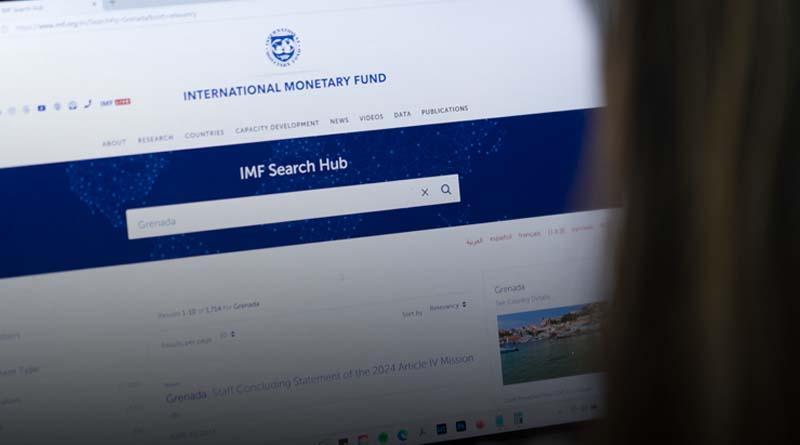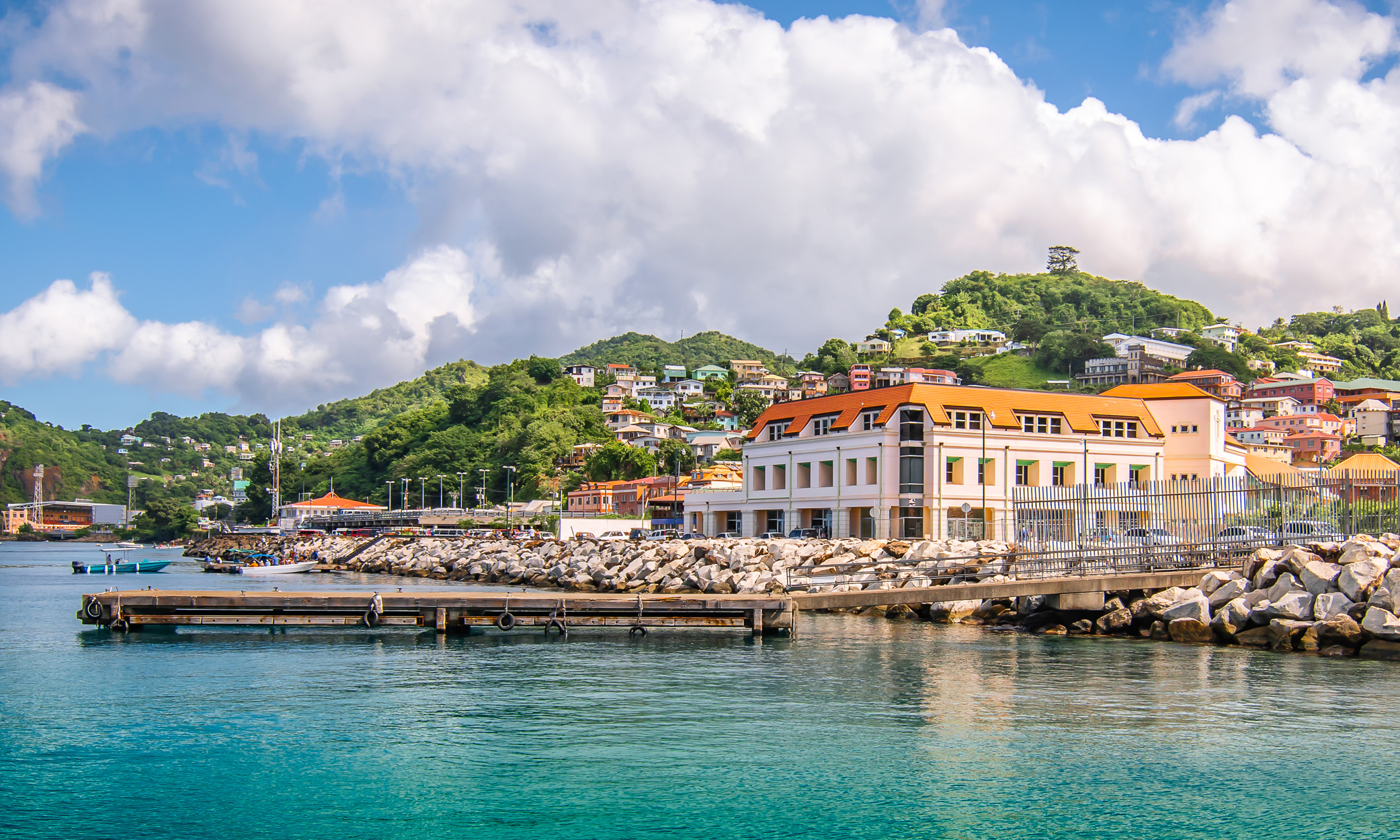Jump to other articles:
IMF Grenada 2024 Article IV Consultation Staff Report

RIF Trust on the International Monetary Fund and Grenada
RIF Trust’s Caribbean Citizenship by Investment specialist is Leila Bagheri. She monitors regional and international news sources to keep up to date with the latest developments such as this IMF Grenada report.
Our Caribbean CBI expert maintains: “High-authority reports from the likes of the globally-respected International Monetary Fund demand our attention.”
“The more positive the coverage of Grenada’s economy; the easier a decision it is to invest in the Grenada Citizenship by Investment program.”
Leila wraps up: “The IMF report is a detailed breakdown of the economy in Grenada with various statistics to give a complete picture of its past, present, and likely future.”
The IMF Grenada 2024 Article IV Consultation Staff Report Essentials
This report narrates the calm before the storm in its context section: “The economy grew by an estimated 4.7 percent in 2023 and continued to grow strongly in early 2024, driven by tourism. Grenada’s 2023 stayover arrival growth outpaced that in the rest of the ECCU and remained strong in the first half of 2024.”
Early 2023 brought a swell in Citizenship by Investment applications. Because of the deluge of new investors, the profits kept coming in 2024. That was “on account of processing delays that resulted in a large application backlog.”
As key developments were finished, the pace of construction slowed. However, the increase of capital in the Citizenship by Investment coffers bodes well for the future. New hotel projects are already in the pipeline thanks to an “accumulation of government deposits and escrow balances.”
Beryl the Peril
Then came July 1 and Hurricane Beryl. The report reveals that “Beryl made landfall as a Category 4 hurricane on the Grenadian islands of Carriacou and Petite Martinique.” The full force of this powerful tropical cyclone was devastating, with “the Global Rapid Post Disaster Damage Estimation (GRADE) report, conducted by the authorities and the World Bank, estimates total damages and losses at above 16 percent of GDP.”
This IMF Grenada analysis continues with details of Carriacou and Petite Martinique witnessing “damages to about 80 percent of their housing, as well as to power, water, and transport infrastructure. Significant damages to crops, fisheries, and livestock (including on the main island)
increased food import needs and affected agriculture exports.”
The reaction of Grenada’s Government was to waive budgetary regulations. By dipping into their deficit in the short term, Grenada was able to bounce back quicker. The country could fund a restoration to normality.
Discussion of Economic Policy in Grenada
This IMF Grenada report addresses the importance of authorities bolstering public finances and fiscal institutions. They commend the apt reaction to Hurricane Beryl from Grenada’s government. The International Monetary Fund applaud “the decision to invoke the escape clause in the fiscal rules framework ensured policy space for timely support of the recovery.”
Yet Beryl is now a past menace. There has to be a reversion to the status quo when it comes to government expenditure. As the IMF point out, “continued budget prudence is needed to ensure a timely return to fiscal rules.”
The International Monetary Fund also highlight the necessity of reforms. These are required “to improve public investment management and the budget planning processes. This is particularly urgent given the large reconstruction and other planned public investment.”
How Effectively Has Grenada Implemented 2023 Article IV Policy Recommendations?
From 2020-22, Grenada suspended fiscal rules and the IMF recommended they reinstall them. This report delivers a pending verdict, as the “escape clause was no longer triggered in 2023.” However, Hurricane Beryl signaled a return to temporary deficit spending.
More targeted social spending is another of the IMF Grenada 2023 Article IV Policy Recommendations. Again, the organization’s finding is pending. This in part relates to the 2022 census not being made readily available yet.
Yet the government has completed the amendment of the 2015 Fiscal Responsibility Act and that improves the institutional fiscal framework. Results, however, are mixed in terms of public investment management and the tax system’s improved efficiency.
The Grenada Government View
This IMF Grenada document concludes with a statement from Ms. Gina Fitzgerald and Ms. Ann Marie Wickham. They begin with the following acknowledgements: “On behalf of our Grenadian authorities, we thank staff for the productive discussions and valuable recommendations during the 2024 Article IV consultation. Our authorities welcome staff’s recognition of Grenada’s strong fiscal position and sustained growth, reflecting their steadfast commitment to prudent fiscal policies and sound economic management.”
Fitzgerald and Wickham reveal Grenada’s pioneering of a natural disaster clause in 2015. It was not activated until 9 years later when Hurricane Beryl hit the island group’s shores. They commend their country for “demonstrating how climate-vulnerable nations can embed resilience into their financial frameworks.”
The concluding remarks of the Grenada representatives center on a government pledge to maintain “the momentum of strong economic growth and fiscal prudence through sound macroeconomic management. They remain dedicated to maintaining debt sustainability while addressing critical development priorities.” Grenada values the relationship it has built up with the IMF to deliver on its development agenda.

Choosing Between Caribbean Citizenship Programs
Although economic performance of the country you are investing in is important, it’s not the only consideration. Donate $260,000 to the University of West Indies (UWI) Fund in Antigua and Barbuda and one member of your family of 6 will receive a tuition-only, one-year scholarship to study at the institution.
At $200,000, the Dominica Citizenship by Investment program offers the lowest CBI threshold in the Eastern Caribbean region. Grenada allows you to apply for a US E2 Visa after residing there for 3 years whilst St Kitts and Nevis offers the most established Citizenship by Investment program in the world. St Lucia is another Caribbean country worth investigating for a second citizenship.
So, contact us now and we’ll be able to talk you through your Caribbean Citizenship by Investment options in greater detail. Before you commit to a particular program, we can work out which one suits you best. Once you’ve consulted with us, we can guide you with your application as you are unable to apply directly for any of these programs directly and must go through a trusted intermediary such as RIF Trust.
 Back to News
Back to News